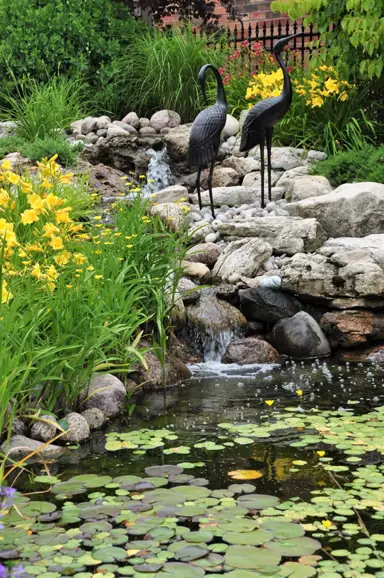
The Plant Company grows, sells, and ships Styrax trees throughout NZ. We pride ourselves on producing high quality plants and seeing the joy from our customers when they receive them. We do hope you enjoy them and support this NZ business that is passionate about Styrax trees.
Why? Our plants are in high demand due to our reputation for delivering high quality products at competitive prices. We may have these in production or be able to source these for you, so please feel free to contact us and our fantastic team will respond to your enquiry. Alternatively, we have a world class plant finder tool that you can use to help find alternative options.
Commonly known as Chinese Snowbell Tree, this is a small, deciduous tree grown for its fragrant flowers and colourful autumn foliage. Small...
Styrax japonica is a small, deciduous tree grown for its fragrant flowers and colourful autumn foliage. Masses of showy and scented, white flowers...
Commonly known as Fragrant Snowbell, this is a small, deciduous tree grown for its scented flowers. The white, bell-shaped blooms are borne in...
Growing colourful trees in your garden delivers a vast range of benefits:
We have the largest variety of Snowbell trees, and we have the right one for your space. Our trees have been selected to thrive in NZ’s climate. We grow and stock only the highest quality plants, sourcing them locally, and from NZ’s leading nurseries. Each plant is packed and transported with extreme care, ensuring it arrives to you in the same condition it was in when it left the nursery. If you are wanting to buy Styrax trees, shop with confidence from the best in the industry.
There are two common names for the genus Styrax:
Here are some other less common names for Styrax:
The lifespan of a Styrax japonica, commonly known as the Japanese snowbell, is typically 50 to 100 years. This species is a slow-growing tree that can reach heights of around 20 to 30 feet (7-10 m) and has a broad, rounded crown. They are native to Japan, Korea, and China and prefer warm, humid climates.
Several factors can affect the lifespan of a Styrax japonica, including:
By providing proper care and maintaining favourable growing conditions, you can help maximize the lifespan of your Styrax japonica and enjoy its beautiful blooms and elegant form for many years to come.
The maximum size of Styrax trees varies depending on the species. Some Styrax species are shrubs that reach heights of only 3-4 feet (1-1.2 meters), while others are large trees that can grow up to 50 feet (15 meters) tall.
Here are some examples of Styrax species and their typical sizes:
These are just a few examples, and there are many other Styrax species with varying sizes. The size of a Styrax tree also depends on growing conditions, such as climate, soil type, and availability of sunlight. In general, Styrax trees grow best in warm, humid climates with well-drained soil and full sun.
Styrax obassia and Styrax japonicus are two closely related species of flowering trees belonging to the Styracaceae family. Both are known for their beautiful, fragrant white flowers that resemble snowbells. However, there are some subtle differences between the two species, both in appearance and horticultural requirements.
Appearance:
The terms "benzoin" and "Styrax" are often used interchangeably, but they have slightly different meanings.
Styrax is the genus name of a group of about 100 species of flowering trees and shrubs in the family Styracaceae. These trees are native to warm temperate and tropical regions around the world. They are characterized by their white, bell-shaped flowers, which are often fragrant.
Benzoin is a resin that is obtained from the bark of several Styrax species. The most common source of benzoin is Styrax benzoin, a tree that is native to Sumatra and Borneo. Benzoin is a fragrant, balsamic resin that has been used for centuries in perfumes, medicines, and incense.
So, while all benzoin comes from Styrax trees, not all Styrax trees produce benzoin. The term "Styrax" is more general, referring to the genus of trees, while "benzoin" refers specifically to the resin that is obtained from some Styrax species.
The aroma of Styrax is often described as rich, sweet, balsamic, faintly floral, and somewhat spicy, with resinous, animalic, amber-like undertones. It is a complex and intriguing scent that has been used in perfumes, medicines, and incense for centuries.
Here are some more specific words that are often used to describe the smell of Styrax:
The exact scent of Styrax can vary depending on the species of tree and the growing conditions. However, all Styrax species have a similar overall aromatic profile.
Here are some interesting facts about Japanese snowbells (Styrax japonicus):
Whether you need assistance finding the plant you’re looking for or you simply want to know more about who we are and what we do, we invite you to get in touch with us today. A member of The Plant Company team will get back in touch as soon as possible.


